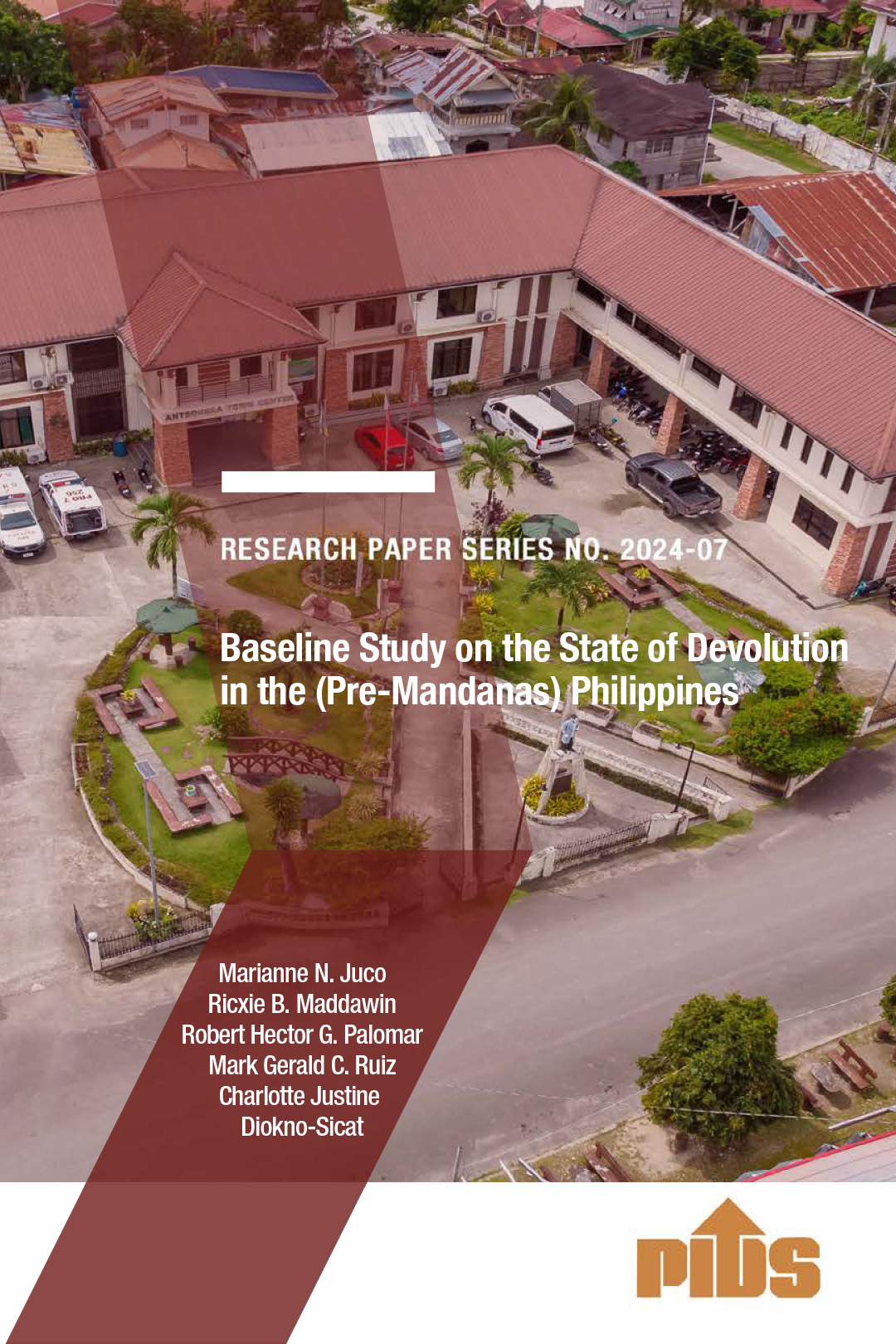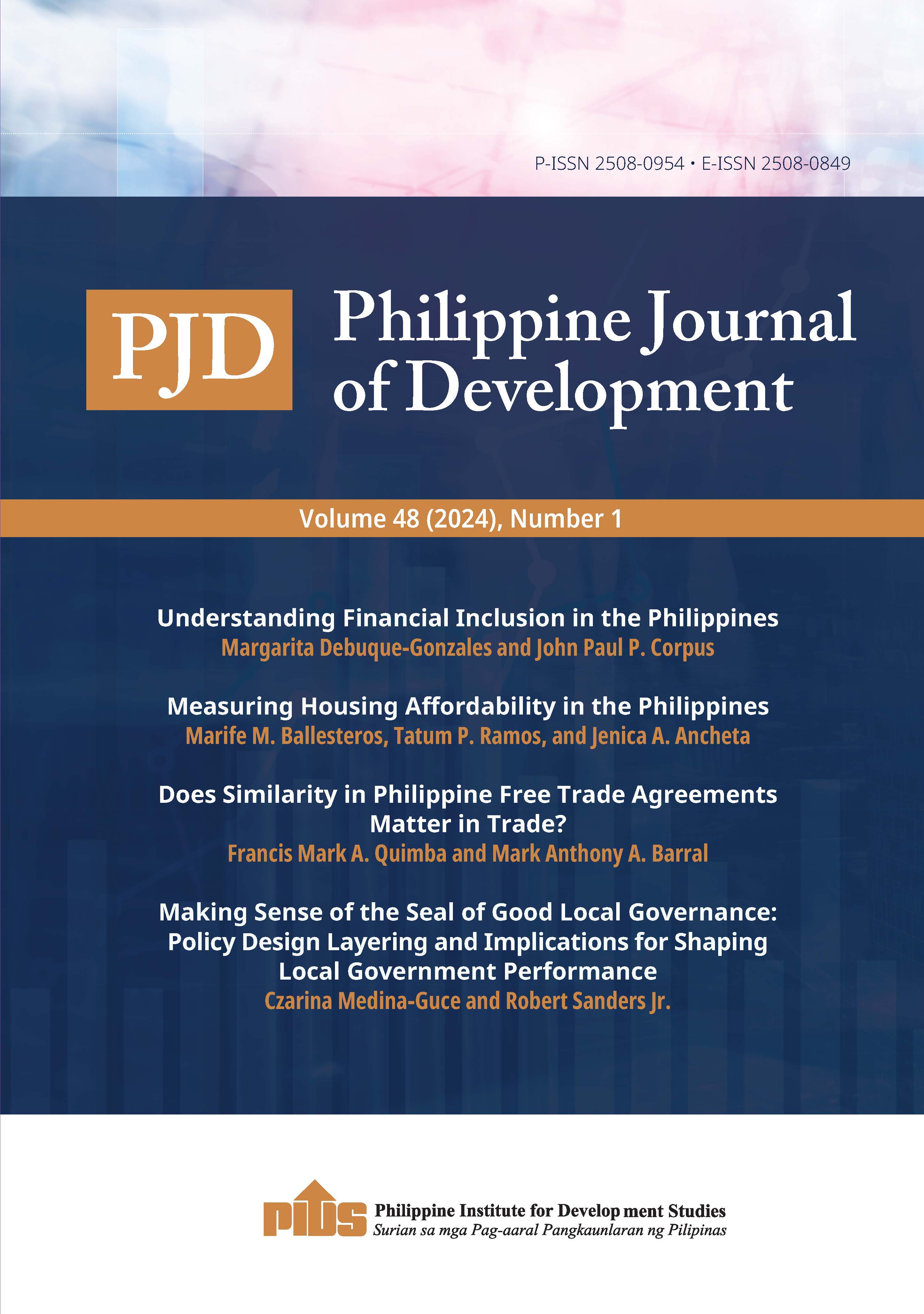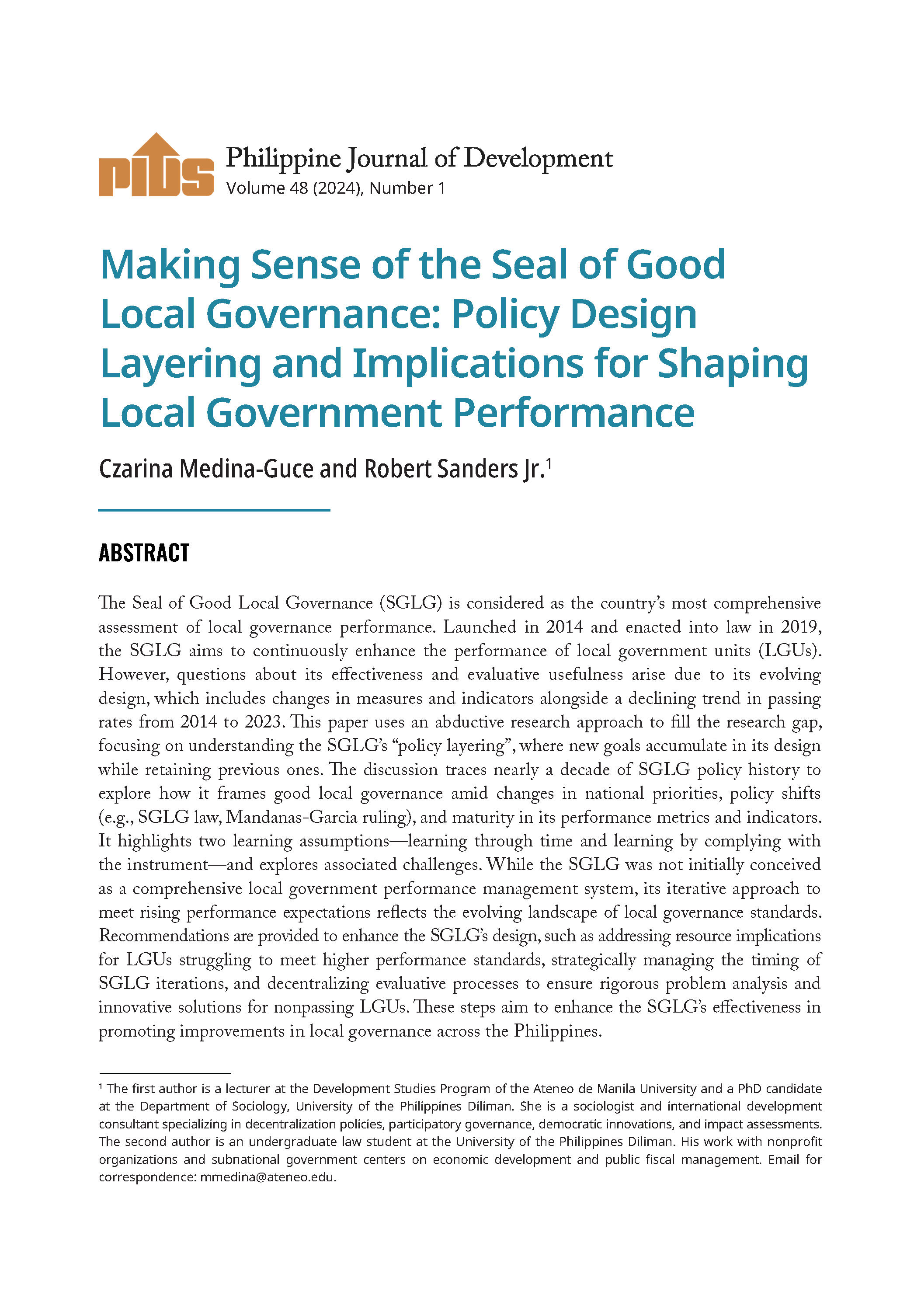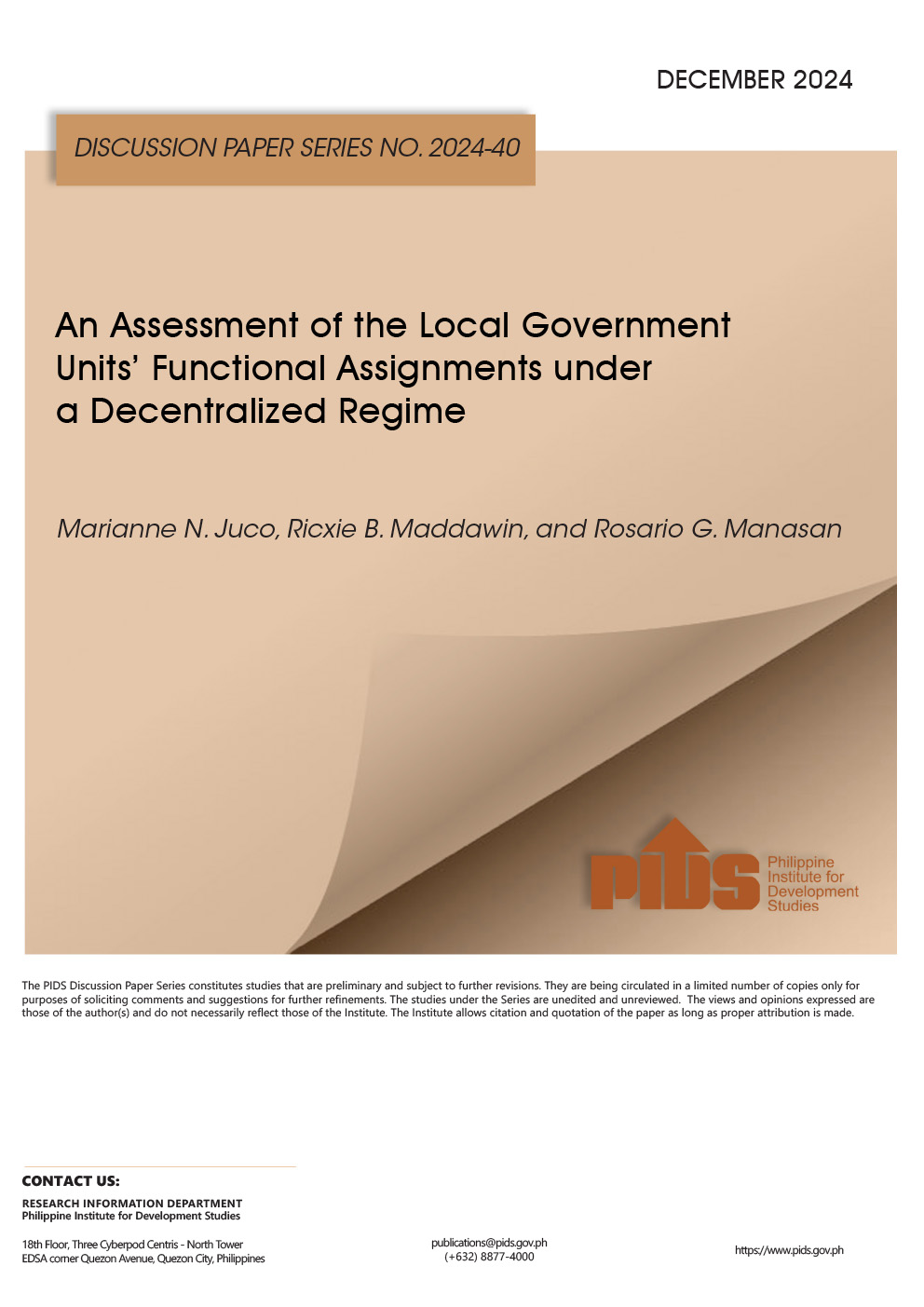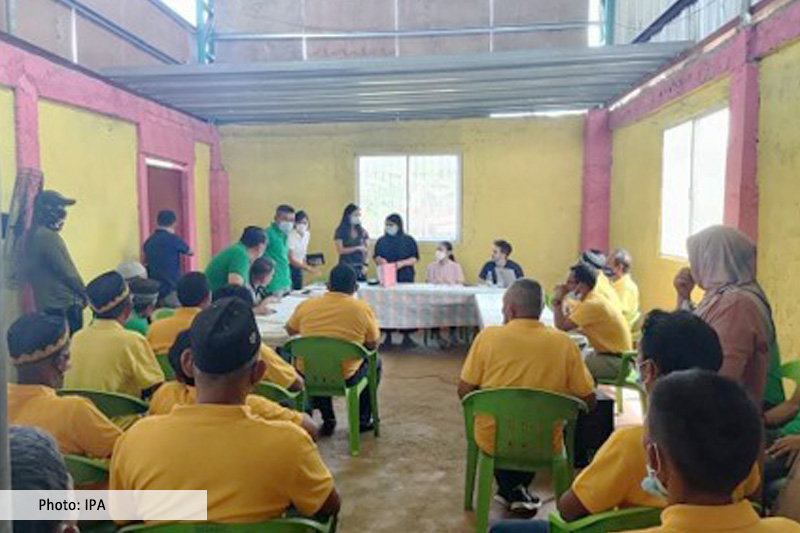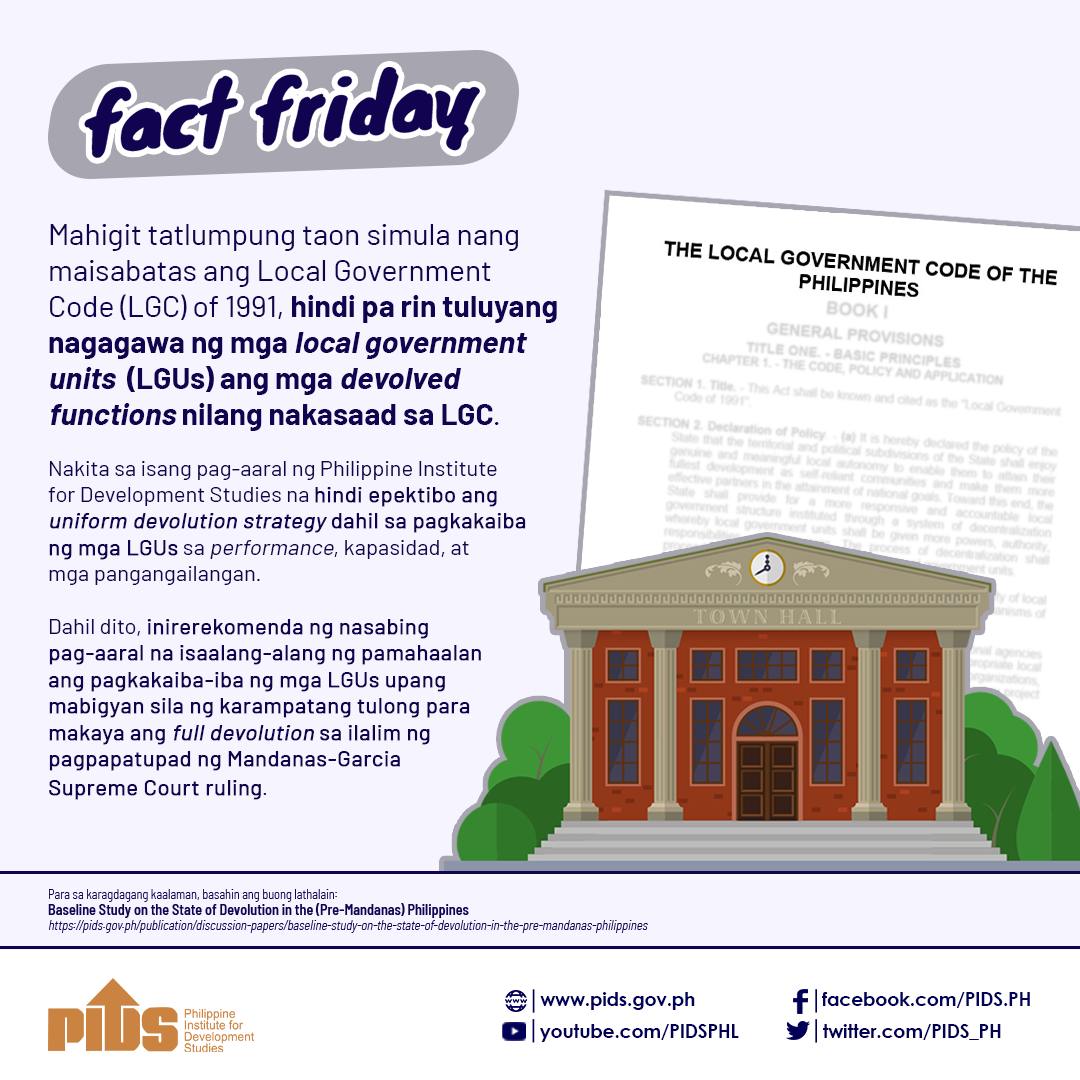Two recent key events have advanced the country’s decentralization agenda. In 2019, the Mandanas-Garcia Supreme Court (Mandanas) ruling expanded the tax base for intergovernmental fiscal transfers to support the autonomy and revenue-raising capacity of local governments. In 2021, Executive Order (EO) 138 established the guidelines for effectively transferring functions and responsibilities from the national to the local governments. One of the directives in EO 138 is the development and review of devolution transition plans (DTPs).
Given the current state of devolution in the country, there is uncertainty about how local government units (LGUs) will fully assume all devolved functions and whether the prescribed devolution transition period is sufficient. This study aims to establish the baseline of current (pre-Mandanas) devolved functions and capacities by evaluating LGU-crafted DTPs. The results will serve as a pivotal starting point for evaluating performance and progress in the phased adoption of devolved functions. The study reveals (i) high variation in LGU prioritization of devolved functions and LGU capacity, (ii) complete full devolution by 2024 is not achievable according to LGUs’ self-assessment, and (iii) capacity development interventions to aid in the devolution agenda primarily focused on workforce and training requirements. Additionally, the study recognizes the need for (i) a mechanism to collect accurate and comprehensive baseline data on the devolved functions of LGUs, (ii) an asymmetric decentralization strategy from the national government, and (iii) greater coordination and guidance from national agencies, particularly on disaster risk reduction and management.

